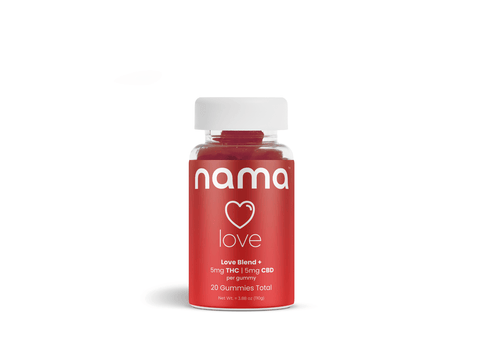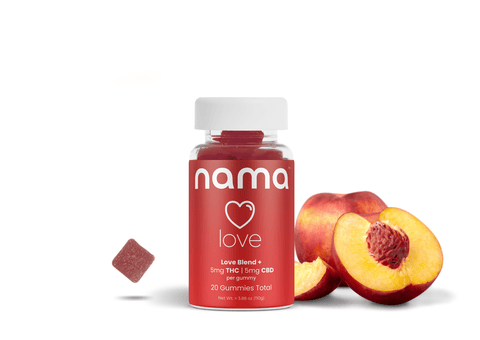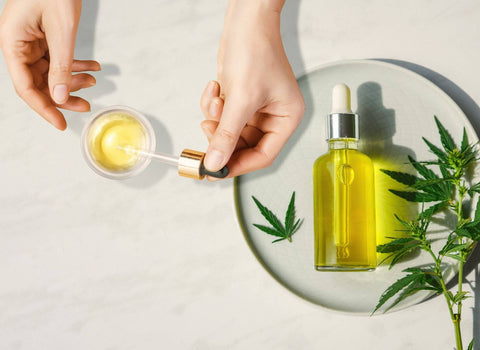Going soberish improves your liver health. Alcohol forces your liver to process acetaldehyde and other toxic compounds that inflame liver tissue and kill cells.
When you replace alcoholic drinks with cannabis alternatives, you reduce the toxic burden on your liver. Swap some alcohol for healthier options that still give you a buzz, and protect your liver without skipping social time.

Our microdosed THC beverages let you relax, ease tension, or soothe pain without contributing to liver damage.
What does alcohol do to my liver?
Alcohol damages your liver in any amount consumed.
- Your liver converts alcohol into acetaldehyde, a toxic compound that directly kills liver cells.
- Regular drinking triggers chronic inflammation throughout your liver, creating permanent scar tissue.
- Ethanol causes fat accumulation in liver cells, which develops into fatty liver disease.
- Alcohol metabolism generates harmful free radicals that attack and damage your liver's cellular DNA.
- Heavy alcohol consumption overwhelms your liver's natural detox pathways, preventing it from performing normal functions.
Can your liver heal when you go soberish?
Your liver function starts improving within days of reducing alcohol consumption. Even a short break from alcohol may let your liver begin repairing inflammation and clearing accumulated fat.
Liver inflammation decreases
When you reduce alcohol intake, chronic inflammation in your liver starts decreasing. A 2023 study explains that alcohol creates an inflammatory cascade of cytokines and reactive oxygen species in liver tissue. When you stop or decrease alcohol consumption, your liver cells stop dealing with constant toxic assault from acetaldehyde, alcohol’s main metabolite.
Fat accumulation reverses
Your liver purges accumulated fat deposits that impact alcohol metabolism. Alcohol forces your liver to convert ethanol into fatty acids that get stored in liver cells. When you cut back, your liver metabolism shifts away from fat storage and begins breaking down existing deposits.
Enzyme levels normalize
Your liver produces elevated enzymes when it's under stress from processing alcohol. Going soberish allows these enzyme levels to drop back toward normal ranges within weeks. Lower enzyme levels indicate your liver is working more efficiently and dealing with less toxic burden from constant alcohol consumption.
Cellular repair accelerates
Reduced alcohol consumption gives your liver cells time to repair DNA damage caused by free radicals. Alcohol metabolism creates harmful compounds that attack cellular structures. Research shows that even cutting back by a few drinks weekly reduces the enzyme activity that generates DNA-damaging compounds, giving your liver numerous benefits as it focuses on fixing damage instead of fighting new toxins.
Detox function improves
Your liver handles hundreds of detox processes beyond alcohol metabolism. When you reduce drinking, your liver can redirect energy toward filtering other toxins, processing nutrients, and maintaining normal metabolic functions. This improved efficiency benefits your entire body's health and energy levels.
People who embrace an alcohol-free lifestyle see the most dramatic improvements. But going soberish by replacing even half your alcohol consumption with healthier alternatives still gives your liver breathing room to recover. Even short sober periods allow your immune system to strengthen while your liver redirects energy away from processing forms of alcohol toward essential healing processes.
Cannabis drinks: liver-friendly alcohol alternatives
Cannabis supports your liver health through your body's built-in cannabinoid receptors. Your liver has CB2 receptors that respond to THC and CBD by reducing inflammation and improving fat metabolism. Research from 2009 found that THC activates these receptors to fight inflammation and prevent liver scarring. Studies also show people who use cannabis have 55% lower rates of liver cancer compared to non-users.
Cannabis drinks are gentler on your liver than other methods. Smoking creates tar, carbon monoxide, and combustion toxins that your liver has to filter out. Vaping produces fewer toxins but still generates harmful chemicals that stress your liver's detox systems. Cannabis drinks sidestep these problems. Your liver processes clean cannabinoids without burnt plant matter or chemical additives. Our water-soluble formula makes it even easier for your liver to handle.
The microdoses we use keep everything smooth. At 2.5–5 mg of THC per serving, you get that social buzz without overloading your liver's processing power. Our Buzz Packs™ contain the higher end of this range with 5 mg of THC and 5 mg of CBD, giving you more soberish relaxation without overloading your liver.
Product QUIZ
Need help deciding what product is best for you? Take our quiz, just three questions until your perfect match!
How to use THC drinks when you're soberish
Your liver heals when you cut back or quit drinking alcohol, but that doesn’t mean you have to sit the party out. Every drink you swap for our delicious buzztail™ is a win.
The soberish approach means finding practical ways to cut back without going cold turkey.
Here are proven strategies to use THC drinks while maintaining your social life and protecting your liver health.
Start with pattern replacement
Identify which alcoholic drinks you can easily swap out. Weekend wine, after-work beer, or social cocktails work well for THC substitution. Keep alcohol for special occasions while using cannabis drinks for daily stress relief and routine relaxation.
Follow the 50% rule
Replace one alcoholic drink per day with a THC beverage. If you normally have two glasses of wine at night, try one glass of wine and one cannabis mocktail instead. This gives your liver a break while keeping your relaxation routine intact.
Time your THC strategically
Use cannabis beverages during the week for unwinding without next-day consequences. Save alcohol for weekends or social events when you can handle recovery time.
Choose the right dose
Buzz Drops at 2.5 mg THC replace a single beer or glass of wine during quiet evenings. Buzz Packs with 5 mg THC substitute for stronger drinks or deeper relaxation, but you can always adjust the dosage with our microdosed beverages.
Start low and see how you react before increasing the dosage. The social aspect matters more than getting heavily buzzed.
Create soberish rituals
Mix mocktails that feel ceremonial, use special glassware, or develop evening routines that signal relaxation without alcohol. This maintains the social moment and emotional connection while protecting your liver from constant toxic damage.
Learn how to make THC drinks that rival any boozy cocktail without liver impairment.
The best nama soberish drinks for liver health
Buy the best soberish alternatives to booze from namaCBD. We create clean cannabis beverages that support your mental health while you socialize.
Try some of our liver-friendly cannabis mocktail recipes made with Buzz Drops or Buzz Packs.
- Cannabis + Redbull: An energizing afternoon boost without alcohol's liver damage. This refreshing combination gives you focus and energy while protecting your liver cells from toxic metabolites.
- Cannabis Moscow mule: Swaps vodka for THC, delivering the same spicy ginger kick with lime without overwhelming your liver's detox systems.
- Raspberry coconut buzztail: Combines tropical flavors with cannabis for a creamy, refreshing alternative to rum-based cocktails. This liver-safe recipe lets you enjoy complex flavors without the cellular damage that alcohol causes.
- Blueberry-cinnamon cannabis mocktail: Antioxidizes while delivering a gentle buzz. The anti-inflammatory compounds in blueberries complement cannabis's liver-protective effects, creating a truly healthy alternative to alcoholic drinks.
Buzz Drops deliver liver-friendly relaxation without toxic metabolites. The water-soluble formula absorbs quickly without stressing your digestive system. Our powder stick packs offer convenient single-serving cannabis doses in powder form. Each packet dissolves completely without changing your drink's taste.
Both products use organic hemp-derived cannabinoids that undergo rigorous third-party testing for purity. We verify that our products contain no heavy metals, pesticides, or other contaminants that could harm your liver.
Subscribe to our THC drinks delivery, save 15%, and get free shipping to 48 states.
Soberish benefits FAQ
A month-long period of time without alcohol gives your liver significant healing time. Liver enzymes drop within weeks, inflammation decreases, and fat accumulation starts reversing. Even this short break from drinking can allow cellular repair that wouldn't happen with continued drinking. Many people use Dry January as part of their mindful drinking journey to evaluate their relationship with alcohol.
If complete abstinence feels too restrictive, try the Soberish January challenge.
Your body gives you clear signs when your liver starts recovering. Energy bounces back, quality of sleep improves dramatically, and those digestive problems disappear. Blood tests show dropping liver enzymes and better metabolic markers, but you'll feel the difference before any lab work. Better central nervous system function and stable moods are also clear giveaways. Even when you can't feel it happening, your liver benefits from every break from alcohol you give it.
Heavy drinking means consuming 4+ drinks daily for men, 3+ for women. Binge drinking also counts: 5+ drinks after a night of drinking for men, 4+ for women. But the quantity matters less than how alcohol affects your day-to-day life. When drinking leads to higher-risk behaviors affecting your job, relationships, or health, it may indicate alcohol addiction requiring treatment centers or professional support.
No form of alcohol protects your liver because all alcoholic drinks contain ethanol. Wine, beer, and whiskey break down into the same toxic compounds your liver processes. Lower-alcohol options just slow the damage. Non-alcoholic alternatives eliminate toxins completely, while cannabis drinks let you maintain your social circle without liver harm.
Your liver can recover after an extended period of time without alcohol, like 100 days. Fat deposits vanish from liver cells, inflammation dissipates, and scar tissue starts healing. Most people see normalized liver enzymes and improved resistance to insulin as metabolism kicks back into gear. This extended break from drinking can deliver a reduction in cancer-related markers while following current health and wellness trends toward liver protection.
Top Sellers
New? Start with our Ultimate Sampler!

THC: 10 mg | CBC: 10 mg | CBD: 10 mg | CBG: 5 mg | CBN 5mg
Resources
Wang, Y., Mukhopadhyay, P., Cao, Z. et al. Cannabidiol attenuates alcohol-induced liver steatosis, metabolic dysregulation, inflammation and neutrophil-mediated injury. Sci Rep 7, 12064 (2017). https://doi.org/10.1038/s41598-017-10924-8
Dukić, M., Radonjić, T., Jovanović, I., Zdravković, M., Todorović, Z., Kraišnik, N., Aranđelović, B., Mandić, O., Popadić, V., Nikolić, N., Klašnja, S., Manojlović, A., Divac, A., Gačić, J., Brajković, M., Oprić, S., Popović, M., & Branković, M. (2023). Alcohol, Inflammation, and Microbiota in Alcoholic Liver Disease. International journal of molecular sciences, 24(4), 3735. https://doi.org/10.3390/ijms24043735
Koop D. R. (2006). Alcohol metabolism's damaging effects on the cell: a focus on reactive oxygen generation by the enzyme cytochrome P450 2E1. Alcohol research & health : the journal of the National Institute on Alcohol Abuse and Alcoholism, 29(4), 274–280.
Nagarkatti, P., Pandey, R., Rieder, S. A., Hegde, V. L., & Nagarkatti, M. (2009). Cannabinoids as novel anti-inflammatory drugs. Future medicinal chemistry, 1(7), 1333–1349. https://doi.org/10.4155/fmc.09.93
ElTelbany, A., Khoudari, G., Al-Khadra, Y., McCullough, A., & Alkhouri, N. (2022). Lower Rates of Hepatocellular Carcinoma Observed Among Cannabis Users: A Population-Based Study. Cureus, 14(4), e24576. https://doi.org/10.7759/cureus.24576
Further reading
How to be social while going soberish
Health benefits of the soberish lifestyle
How do Buzz Packs affect the liver?
Is CBD bad for your liver health?
nama CBD FDA & legal disclaimer
Our products are not intended to diagnose, treat, cure, or prevent any disease. They are not a replacement for prescription medications and have not been evaluated by the U.S. Food and Drug Administration (FDA).
The information provided on this website does not and is not intended to constitute legal advice or any statement of the status of any laws. Any information, content, and materials available on this site are for general informational purposes only and are not intended to be relied upon for any purpose.
Readers of this website should contact their attorney to obtain advice concerning any particular legal matter, including decisions on what products are, or are not, legal to sell, possess, or consume. No reader, user, or browser of this site should act or refrain from acting based on the information on this site without first seeking legal advice from their own counsel in the relevant jurisdiction.
About
Learn
Join us on this journey

© Copyright 2025 nama Products LLC. All Rights Reserved.
†These statements have not been evaluated by the Food and Drug Administration. These products are not intended to diagnose, treat, cure or prevent any disease. All information presented here is not meant as a substitute for or alternative to information from health care practitioners. Please consult your health care professional about potential interactions or other possible complications before using any product.
††The information provided on this website does not, and is not intended to, constitute legal advice or any statements of the status of any laws. Any information, content, and materials available on this site are for general entertainment purposes only, and are not intended to be relied upon for any purpose.

By clicking ‘Yes,’ you agree to our
Terms & Conditions and Privacy Policy
123 John Doe Street
Your Town, YT 12345
Store Hours
Sun: Closed
Mon-Fri: 9:00 - 17:00
Sat: 10:00 - 13:00
What to expect at pickup
Closed
Closing at 5pm
Closing at 5pm
Closing at 5pm
Closing at 5pm
Closing at 5pm
Closing at 1pm

![Buzz Drops™ [THC Drink Drops]](http://www.namacbd.com/cdn/shop/files/nama_thc_buzz_drops.png?v=1711412866&width=480)
![Buzz Drops™ [THC Drink Drops]](http://www.namacbd.com/cdn/shop/files/buzz-drop-wine-comparison.png?v=1736882023&width=480)
![Buzz Packs™ [THC and CBD Powder Drink Mix]](http://www.namacbd.com/cdn/shop/files/nama_buzz_packs_thc_drink_pack_white_background.png?v=1741884660&width=480)
![Buzz Packs™ [THC and CBD Powder Drink Mix]](http://www.namacbd.com/cdn/shop/files/Buzz_Packs_Label.png?v=1741884660&width=480)














Comments (0)
There are no comments for this article. Be the first one to leave a message!